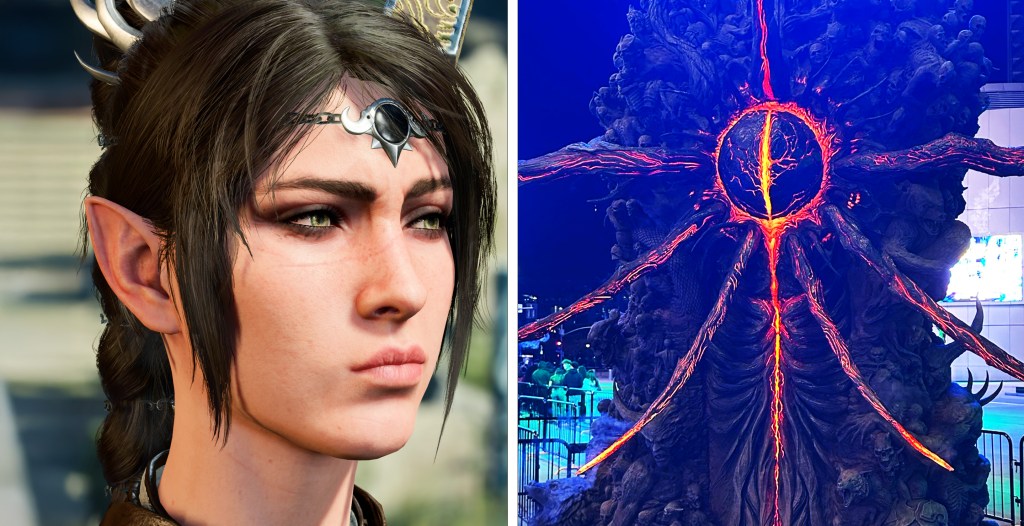Indiana governor Mike Pence, the fiercely conservative and ultra-religious culture warrior who is now Donald Trump’s running mate, hates gay people. It’s impossible to know what’s in his heart, of course, but any LGBTQ person who takes a look at the man’s decades in politics and the policies he’s advocated will find it difficult to come to any other conclusion.
More than many Republicans, Trump has seemed tolerant of gay people, perhaps because of his cosmopolitan New York roots. Pence, whose career as an elected official began when he won a House seat in 2000, is his opposite in that respect—a middle-of-the-country conservative who Trump likely hopes will appeal to the Christian right.
Videos by VICE
Pence is best known for the political firestorm he ignited last year when he signed Indiana’s Religious Freedom Restoration Act (RFRA) into law. The signing ceremony was private, but a picture tweeted by Micah Clark, the executive director of the conservative American Family Association of Indiana, showed Pence surrounded by anti-LGBTQ activists as he signed the bill, including Eric Miller of Advance America and Curt Smith of the Indiana Family Institute, giving little doubt as to the motivation behind the RFRA.
The law allows business owners and other private entities to discriminate against LGBTQ customers if they cite religious grounds to refuse them service. Indiana was the first state to pass this type of law, but a wave of them have been proposed by Republican lawmakers across the country: In 2015, 22 of these bills were introduced, though only two—in Indiana and Arkansas—became law. This year, 22 more have been introduced; 21 of those bills have died, while North Carolina’s is still working its way through the state legislature.
In the wake of the passage of Indiana’s RFRA, bakers, landlords, florists, photographers, and a range of other small business owners refused to serve their gay customers, eliciting outrage from the rest of the country. Real economic consequences for the state ensued. The CEO of tech-industry juggernaut Salesforce announced he would cancel all employee travel to Indiana, organizations like Angie’s List pulled jobs out of the state, and a reported $60 million in convention revenue alone was lost.
As Slate’s Mark Joseph Stern noted this Thursday, almost immediately after signing the bill into law, the Republican governor started to backtrack, claiming the legislation wasn’t intended to explicitly discriminate against gays while dodging questions about whether it could, in practice, have that effect. Eventually, Pence walked back his support for the bill in a Wall Street Journal op-ed couched in religious rhetoric, and the following month, Indiana state lawmakers passed a “fix” to the bill intended to ameliorate fears it would be used to discriminate against LGBTQ citizens—a measure the law’s critics say did not go far enough.
Pence may protest that the RFRA was not meant to legalize discrimination, but it also dovetails with his history of opposition to LGBTQ rights. Like many Republicans, Pence has been a longtime opponent of gay marriage, and has stated repeatedly—on the House floor and elsewhere—that he believes in the biblical definition of marriage as between a man and a woman. When the federal Defense of Marriage Act was overturned in 2013, Pence, by then the Indiana governor, wanted the state to pass a constitutional amendment banning same-sex marriage and even civil unions, a step even some other Republicans said went too far. (At the time, gay marriage wasn’t allowed in Indiana.)
The campaign that got him into Congress in 2000 was full of anti-gay bias. Buzzfeed’s Andrew Kaczynski surfaced an archive of Pence’s 2000 campaign website, full of homophobic gems like this: “Congress should oppose any effort to recognize homosexual’s [sic] as a ‘discreet and insular minority’ entitled to the protection of anti-discrimination laws similar to those extended to women and ethnic minorities.”
The website also declared Pence’s support for ex-gay conversion therapy, evinced the belief that organizations receiving HIV-treatment funds under the Ryan White Care Act “celebrate and encourage” HIV transmission, and demonstrated his conviction that “homosexuality is incompatible with military service.”
In Pence’s 12 years in Congress, he voted to define marriage as only between a man and a woman, opposed measures to block employer discrimination based on sexual orientation, and opposed the repeal of Don’t Ask, Don’t Tell. In 2009, he opposed the expansion of hate crime definitions to include sexual orientation because he claimed that it would have a “chilling effect” on religious expression. A year later, he told CNN that open LGBTQ military service amounts to “social experimentation.”
It’s been an exhilarating decade to be gay, lesbian, trans, non-binary, and otherwise queer in America. We’ve seen historic gains in our rights to marry, work, reproduce, and live openly and freely. Even as we fight new efforts to criminalize and marginalize our most vulnerable communities, and even as we reel from the deadliest LGBTQ massacre in US history, it’s been an incredible decade politically—albeit with notable exceptions, like the national RFRA onslaught and, more recently, the fight for trans bathroom rights in North Carolina and elsewhere.
Trump’s choice of Pence was in some ways to be expected, an obvious bone to toss to the religious right. But Pence’s new prominence—and anti-gay planks in the draft of the Republican platform—make it clear that the GOP at-large remains more closely aligned with homophobes than with LGBTQ Americans. He was “Trump’s least worst choice” for VP, as FiveThirtyEight’s Nate Silver wrote. Sadly, he was very much Trump’s worst choice for LGBTQ citizens.
Follow Tyler Trykowski on Twitter.
More
From VICE
-

Screenshot: Larian, X @shinobi602 -

Gene Siskel and Roger Ebert (Photo by Norm Staples/Getty Images) -

One of the finalists, "Now Which Direction Is My Nest?" (Credit: Alison Tuck) -

Credit: Google